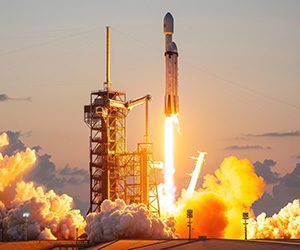
In the grand theater of human endeavor, few fields showcase the pinnacle of project management quite like the space travel industry. From the race to the moon to the current ambitions of colonizing Mars, space projects have not only pushed the boundaries of what’s possible but have also provided invaluable lessons in project management. Here’s a cosmic journey through some of these lessons that can be applied to any project, no matter how earthbound.
1. Precision Planning and Contingency
Lesson: Every aspect of space travel requires meticulous planning. However, the universe is known for its unpredictability; thus, contingency is key.
Application:
- Detailed Roadmaps: Just like plotting a trajectory to another planet, project managers need to create detailed project timelines with clear milestones.
- Risk Management: Develop comprehensive risk management plans. In space, if a tool floats away, you can’t just go get another one. On Earth, while we might not face such dire straits, anticipating and planning for potential setbacks can save time and resources.
2. Cross-Disciplinary Teams
Lesson: Space missions involve astrophysicists, engineers, psychologists, and more. The success of these missions hinges on the synergy of varying expertise.
Application:
- Varying Skill Sets: Encourage teams that cross-pollinate ideas from various fields. This can lead to innovative solutions that a homogenous team might overlook.
- Integrated Communication: Ensure all team members can communicate effectively. In space, if one part of the team doesn’t understand the other, missions can fail. Here on Earth, ensuring everyone is on the same page can prevent project derailments.
3. Resource Scarcity and Management
 Lesson: In space, every ounce of weight, every drop of water, and every breath of air is measured and managed meticulously because resupplying is near impossible.
Lesson: In space, every ounce of weight, every drop of water, and every breath of air is measured and managed meticulously because resupplying is near impossible.
Application:
- Lean Operations: Adopt lean management principles to minimize waste in time, materials, and human effort.
- Resource Allocation: Be strategic about how resources are used. Just like astronauts ration their supplies, project managers should ration their budget, time, and human resources wisely.
4. Adaptability in Extreme Conditions
Lesson: Space is an environment where even small changes can have massive repercussions. Adaptability isn’t just a skill; it’s a survival tool.
Application:
- Flexible Planning: While plans are crucial, the ability to adapt when unexpected issues arise is vital.
- Cultural Adaptability: Projects often span multiple cultures and time zones. Understanding and adapting to these differences can streamline operations much like adapting to zero gravity.
5. Embracing Failure as Education
 Lesson: Space exploration has had its share of failures, from the Challenger to the Mars Climate Orbiter. Each failure, however, has been a stepping stone to greater success.
Lesson: Space exploration has had its share of failures, from the Challenger to the Mars Climate Orbiter. Each failure, however, has been a stepping stone to greater success.
Application:
- Fail Forward: Encourage a culture where failures are dissected for lessons rather than hidden in shame.
- Iterative Development: Use agile methodologies to allow for quick iterations where failures can be small, controlled, and educational rather than catastrophic.
6. The Power of Vision
Lesson: The space industry thrives on big, audacious goals. The vision to explore beyond our planet has driven decades of innovation.
Application:
- Visionary Leadership: A compelling, clear vision can motivate teams, align efforts, and drive innovation.
- Long-Term Goals: Just as space agencies plan missions years or decades in advance, set long-term goals for your projects that inspire and guide short-term actions.
7. Sustainability and Legacy
Lesson: Space missions are increasingly focusing on sustainability, from recycling systems on the ISS to considerations for not contaminating other planets.
Application:
- Sustainable Practices: Integrate sustainability into project management. This could mean considering the environmental impact, ensuring projects can be maintained long-term, or even how a project’s legacy might shape future endeavors.
- Legacy Thinking: Think about how your project will influence future projects or the industry as a whole, much like how past space missions have paved the way for today’s innovations.
8. High Stakes Communication
Lesson: Communication in space must be flawless. Lives depend on it, and messages often have to travel vast distances.
Application:
- Effective Stakeholder Communication: Ensure that all stakeholders are informed and engaged. Miscommunication can be as disastrous in business as it is in space.
- Transparency: Maintain transparency in project updates, much like astronauts must report every anomaly to ground control.
Conclusion
The space travel industry, with its blend of cutting-edge technology, human ambition, and the stark reality of cosmic conditions, offers a rich tapestry of lessons for project managers. By adopting a mindset that embraces detailed planning with adaptability, fosters cross-disciplinary collaboration, manages resources with utmost efficiency, and learns from failures while keeping an eye on the long-term vision, project managers can navigate their projects with a starship captain’s prowess.
Here on Earth, while we might not be dealing with zero gravity or alien life forms, the principles remain universally applicable, guiding us to success with the precision of a spacecraft docking at the ISS. As we continue to look up at the stars for inspiration, perhaps it’s time for project managers to look inward at the industry’s practices to elevate their own projects to new heights. Remember, in the vast universe of project management, the sky isn’t the limit; it’s just the beginning.











Leave a Reply